Dangers of Making MDMA Pills
Firstly, It takes a combination of hazardous substances, such as formaldehyde, mercury, and ammonium chloride, to make ecstasy.Making MDMA is extremely risky, as the chemical reactions and exposure to elements like mercury can cause lifelong damage or even death.
There are many dangers associated with making MDMA, including:
- Chemical burns: The chemicals used to make MDMA can cause serious chemical burns if they come into contact with the skin or eyes.
- Inhalation poisoning: The fumes from the chemicals used to make MDMA can be poisonous if they are inhaled.
- Explosive hazards: The chemicals used to make MDMA can be explosive if they are not handled properly.
- Health risks: The chemicals use to make MDMA can also be harmful to your health, even if they do not cause immediate burns or poisoning.
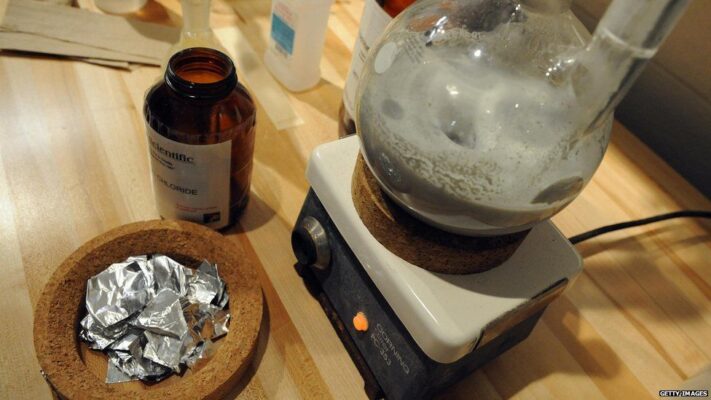
What Is Ecstasy Made Of?
Tests done on seize Ecstasy show that its composition can vary. Generally it typically contains MDMA has the primary active ingredient, but also contains various other substances such as:
- Amphetamines.
- Caffeine.
- Ephedrine.
- Ketamine.
- Methamphetamine.
- Synthetic cathinones.
In addition, sometimes Ecstasy may not contain any MDMA at all and may be compose entirely of other substances,mdma pills dark web,mdma pills documentary,mdma pills,taking 2 mdma pills.
How Is Ecstasy Made?
Secret laboratories in Canada, occasionally the Netherlands, and the United States produce ecstasy. People mix substances that come from plants or other natural sources. Also, the procedure is risky and exposes producers to possibly fatal outcomes.
The final product is frequently combined with dangerous drugs like caffeine, fentanyl, or other compounds, which can have unanticipated ecstasy effects.
MDMA Pills Uses
- Nearly 2.5 million people report using ecstasy in the year prior, according to the 2017 National Survey on Drug Use and Health.Then, even with its many harmful ingredients and potentially harmful consequences on the body, ecstasy is still a popular drug in some party environments.Using ecstasy can have the following long-term adverse effects:Problems concentrating.
- Impulsive behavior.
- Insomnia.
- Heart disease.
- Depression.
The Future of MDMA Pills Research
Interest in using MDMA in clinical settings is rising as more study is done on its potential as a therapy. Research has demonstrated encouraging outcomes in the treatment of PTSD and other mental health issues, indicating that MDMA may be a major player in therapeutic approaches in the future. This change in thinking could result in the safe and controlled usage of MDMA in controlled settings, thereby turning it from a recreational drug to an effective therapeutic aid.
MDMA Pills Addiction Treatment
Also, It’s never too late to seek the help you need to kick your MDMA habit and start living the life you deserve if you’re abusing the drug. The national sites of American Addiction Centers provide evidence-base addiction-focuse healthcare to assist clients in making a lasting recovery from drug and alcohol abuse.
Also, Call our friendly and experienced admissions navigators at 888-808-3441, available 24/7, to find out more about the various care levels offered at any of our locations. Also, they are available to respond to inquiries regarding your available treatment alternatives, such as:
- Medical detox.
- Inpatient drug and alcohol rehab.
- Partial hospitalization programs.
- Intensive outpatient programs.
- Outpatient treatment.
- Telehealth services.
Furthermore, Concern about the expense of therapy? The majority of major insurance providers are accept at the treatment facilities operate by American Addiction Centers. We provide other payment options if your insurance is insufficient or nonexistent. Also, don’t put off getting the assistance you are due act now.
The Importance of MDMA Pills: Understanding Their Role in Society and Therapy.
MDMA, a synthetic substance sometimes referred to as ecstasy or moly, has drawn a lot of attention due to its unusual effects and its medical uses. MDMA was first created in the early 20th century as a chemical compound with few applications, but it has since grown in popularity as a recreational drug and as a possible cure for mental illness. This post delves into the significance of MDMA pills, emphasizing their effects, cultural relevance, and prospective therapeutic uses.
Effects of MDMA
The stimulant and empathogenic qualities of MDMA are well-known, and they can provide euphoria, emotional warmth, and improved sensory perception. Users frequently report:
- Increased Empathy and Connection: MDMA enhances feelings of closeness and emotional bonding, making it popular in social settings like parties and festivals. This effect is attributed to the drug’s influence on serotonin levels in the brain, which plays a crucial role in mood regulation and emotional responses .
- Altered Perception: Users may experience distortions in time and sensory perception, contributing to the drug’s appeal in nightlife and music festival environments.
- Physical Effects: MDMA can increase energy levels, heart rate, and blood pressure, making it a stimulant that encourages prolonged physical activity, such as dancing.
Cultural Significance
In many cultural contexts, MDMA has become a standard, especially in the rave and electronic dance music (EDM) scenes. Because of its capacity to improve interpersonal relationships and foster a feeling of community, young adults frequently choose it. Also, because MDMA tablets are unregulated, there can be serious risks associated with them. For example, different doses of MDMA or other chemicals may be present, which can complicate the user experience and raise the possibility of negative effects.
Therapeutic Potential
However, the promise of MDMA in therapeutic settings, notably for the treatment of post-traumatic stress disorder (PTSD), has been highlighted by recent research. Clinical trials have yielded encouraging results, with a sizable portion of patients reporting a decrease in symptoms of PTSD following MDMA-assisted treatment. Then, up to 88% of participants in several studies reported significant improvements, and many of them no longer met the criteria for a PTSD diagnosis following treatment.
MDMA’s empathogenic properties can help people experience emotional breakthroughs by enabling them to face and process painful experiences in a safe space. Growing traction for this therapeutic use is raising interest in MDMA’s possible medical applications.
The Case for Legalizing MDMA: A Path Towards Healing
MDMA, also referred to as ecstasy or molly, has a lengthy history of usage in recreational settings and in the nightlife. But new studies have shown that it can also be an effective therapeutic tool, especially for addressing mental health issues like post-traumatic stress disorder (PTSD) and others. The argument in favor of legalizing MDMA is becoming stronger as the debate over drug legalization develops. The medicinal advantages, existing legal situation, and possible legalization’s ramifications are all examined in this blog post.
Understanding MDMA and Its Therapeutic Potential
Again, Synthetic drugs such as MDMA affect perception and emotion by activating neurotransmitters in the brain such as norepinephrine, dopamine, and serotonin. Also, despite being widely used recreationally for its euphoric effects, research has indicated that MDMA can be a valuable tool in psychotherapy, especially for those with PTSD.
Clinical Evidence
Then, the efficacy of MDMA-assisted therapy has been shown in recent clinical trials. After receiving treatment that included both MDMA and psychotherapy, almost 67% of PTSD individuals in a crucial research ceased to meet the diagnostic criteria for the disease. Considering that the placebo group’s success rate was only 32%, this represents a significant improvement.
These results imply that MDMA can help people in a therapy environment confront unpleasant memories and process emotions more easily.
Current Legal Status of MDMA
Furthermore, is of right now, MDMA is categorized as a Schedule I controlled substance in the US, meaning that there is no recognized medical use for it and a significant potential for misuse. Access to the medication for medicinal purposes and research prospects have been severely restricted by this designation.
.. However, as additional research reveals its possible advantages, the situation is shifting.
Legislative Developments
A number of states are starting to investigate the possibility of legalizing MDMA for medical purposes. Legislative attempts to legalize MDMA, for example, have been made in Colorado in response to encouraging clinical study outcomes. Other states are starting to implement similar programs, indicating a growing understanding of the medication’s therapeutic potential.
The Benefits of Legalizing MDMA
1. Improved Access to Treatment
Legalizing MDMA may improve the availability of efficient therapies for mental health issues. Healthcare professionals could administer MDMA-assisted therapy to individuals who may benefit from it by regulating its usage, especially those who have not received relief from conventional treatments.
2. Harm Reduction
Legalization would make it possible to regulate MDMA, guaranteeing users’ access to pure, unadulterated drugs. This could greatly lower the risks of using illegal drugs, like overdosing and coming into contact with dangerous adulterants.
3. Increased Research Opportunities
Researchers would have more leeway to investigate the effects and possible uses of MDMA with legal status. This could result in a better comprehension of the medication and its advantages, opening the door for novel approaches to treating a range of mental health conditions, such as addiction, depression, and anxiety.
Identification of MDMA Pills: A Guide
Besides, MDMA pills can look different and are sometimes counterfeit, it might be difficult to identify them. Here’s a helpful guide:
Visual Recognition:
1. Colors: MDMA pills come in various colors, including white, pink, blue, and yellow.
2. Logos and Stamps: Look for logos, stamps, or markings, such as hearts, stars, or animals.
3. Shapes: Pills can be round, oval, or rectangular.
4. Size: MDMA pills vary in size, from 5-15mm in diameter.
Common MDMA Pill Logos:
1. Hearts
2. Stars
3. Smiley Faces
4. Animals (e.g., dolphins, birds)
5. Letters or Numbers
Pill Testing:
1. Marquis Reagent: Turns purple or black when reacting with MDMA.
2. Mandelin Reagent: Turns yellow or green when reacting with MDMA.
3. GC/MS: Laboratory testing for definitive identification.
Online Resources:
1. PillReports: A database of user-submitted pill reports.
2. EcstasyData: A laboratory testing program for MDMA pills.
Important Notes:
1. Visual identification is not foolproof.
2. Counterfeit pills can mimic legitimate ones.
3. Testing is crucial for accurate identification.
Remember, using MDMA involves hazards even when you are properly identified. Give safety and harm reduction first priority.
MDMA Pills and Mental Health: Recognizing the Relationship
Next , On mental health MDMA (3,4-methylenedioxymethamphetamine) can have both beneficial and detrimental consequences.
Positive Effects:
1. Emotional Processing: MDMA can enhance emotional processing and empathy.
2. Anxiety Reduction: MDMA has been shown to reduce anxiety in some individuals.
3. PTSD Treatment: MDMA-assisted therapy has been studied for treating post-traumatic stress disorder (PTSD).
Negative Effects:
1. Depression: MDMA use can exacerbate depressive symptoms.
2. Anxiety: MDMA can increase anxiety in some individuals.
3. Psychosis: MDMA can trigger psychotic episodes in vulnerable individuals.
4. Addiction: MDMA can be addictive, particularly with frequent use.
MDMA Interactions with Mental Health Conditions:
1. Depression: However, MDMA can interact with antidepressant medications.
2. Anxiety Disorders: MDMA can exacerbate anxiety disorders, such as OCD or PTSD.
3. Bipolar Disorder: MDMA can trigger manic episodes.
4. Schizophrenia: MDMA can worsen psychotic symptoms.
Precautions and Contraindications:
1. History of Mental Health Conditions: Avoid using MDMA if you have a history of mental health issues.
2. Current Mental Health Treatment: Consult your doctor or therapist before using MDMA.
3. Family History of Mental Health Conditions: Be cautious if you have a family history of mental health issues.
Remember:
1. MDMA affects individuals differently.
2. Mental health should be prioritized.
3. Seek professional help if needed.
Knowing how MDMA affects mental health can help you prioritize your mental health and make wise decisions.
MDMA Pills Harm Reduction: A Manual for Safer Consumption
Hence, the hazards connected to MDMA usage can be reduced with the help of harm reduction techniques. Here are some pointers:
Prior to Use:
1. Also, research and understand: Learn about MDMA’s effects, risks, and interactions.
2. Set boundaries: Decide on a safe dosage and setting.
3. Then, Choose a trusted source: Obtain MDMA from a reliable supplier.
4. Test the substance: Use a drug testing kit to ensure purity.
During Use:
1. Start low, go slow: Begin with a small dose and gradually increase as needed.
2. Stay hydrated: Drink plenty of water to avoid dehydration.
3. Monitor body temperature: Be aware of overheating or hypothermia.
4. Have a buddy system: Use MDMA with a trusted friend or group.
After Use:
1. Rest and relax: Allow your body time to recover.
2. Rehydrate: Drink water and electrolyte-rich fluids.
3. Reflect on the experience: Consider the effects and adjust future use accordingly.
Additional Tips:
1. Avoid mixing substances: Don’t combine MDMA with other drugs or alcohol.
2. Be aware of mental health: If you experience anxiety, depression, or other concerns, seek help.
3. Keep emergency services handy: Have contact information for medical assistance.
Resources:
1. Harm reduction organizations: Reach out to organizations like the Harm Reduction Coalition or DanceSafe.
2. Online forums: Join online forums or communities to connect with others and share experiences.
3. Medical professionals: Consult with medical professionals for personalized advice.
Recall that harm reduction does not replace medical advice or care. Give your health and wellbeing first priority.
MDMA Pills Safety and Testing: A Handbook for Harm Reduction
Furthermore, It is essential for harm reduction to test MDMA for contaminants and purity. Then, here are a few techniques:
Testing Methods:
1. Marquis Reagent: Turns purple or black when reacting with MDMA.
2. Mandelin Reagent: Turns yellow or green when reacting with MDMA.
3. GC/MS: Laboratory testing for definitive identification.
4. Drug Testing Kits: Commercially available kits that detect MDMA and contaminants.
Safety Precautions:
1. To begin,start with a low dose: Begin with a small amount to assess tolerance.
2. Then,Use in a safe environment: Choose a comfortable, familiar setting.
3. Have a buddy system: Use MDMA with a trusted friend or group.
4. Also, Stay hydrated: Drink plenty of water to avoid dehydration.
5. Monitor body temperature: Be aware of overheating or hypothermia.
Contaminants to Watch Out For:
1. MDA (Methylenedioxyamphetamine)
2. PMA (Paramethoxyamphetamine)
3. PMMA (Paramethoxymethamphetamine)
4. Caffeine and other stimulants
5. Cutting agents (e.g., lactose, starch)
Resources:
1. Harm reduction organizations: Reach out to organizations like the Harm Reduction Coalition or DanceSafe.
2. Online forums: Join online forums or communities to connect with others and share experiences.
3. Medical professionals: Consult with medical professionals for personalized advice.
Remember, testing and safety precautions can minimize risks, but no method is foolproof. Prioritize your health and well-being.
MDMA Pills Dosage and Safety Guidelines
MDMA is a well-known psychoactive drug that is sometimes referred to as ecstasy or molly. It is well-known for its euphoric effects and elevated sentiments of empathy. To reduce hazards and improve the experience, it is essential to comprehend the right dosage and safety precautions. Important details regarding MDMA dosage and safety procedures are included in this book.
Recommended Dosage For MDMA Pills
General Dosage Guidelines
- Standard Dose: Also, a typical single dose of MDMA ranges from 75 mg to 100 mg. This amount is generally considered safe for most users, but individual factors such as body weight, tolerance, and the method of consumption can influence the appropriate dosage .
- Weight-Based Calculation: Also, more conservative guideline suggests a dosage of 1.5 mg/kg of body weight, with a maximum limit of 120 mg for those weighing over 80 kg (176 lbs). This approach helps tailor the dosage to individual body weight, promoting safer use.
Starting Low and Going Slow
- Start Low: Then, for those new to MDMA or unsure of their tolerance, it’s advisable to start with a lower dose (around 50 mg) and wait to assess the effects before considering any additional doses .
- Avoiding Redosing: Then users should avoid taking additional doses while still feeling the effects of the initial dose, as this can lead to increased risks of adverse effects and overdose
Safety Guidelines
Hydration and Environment
- Stay Hydrated: MDMA can increase body temperature and lead to dehydration. It’s essential to drink water regularly, but avoid excessive consumption to prevent water intoxication.
- Cool Environment: However, If using MDMA in a party or club setting, take breaks in cooler areas to prevent overheating. Recognize the signs of heat exhaustion and act quickly if someone shows symptoms
Avoid Mixing Substances
- No Polydrug Use: Mixing MDMA with other substances, including alcohol, can significantly increase the risk of adverse effects. It’s best to use MDMA alone to minimize potential complications.
Recognizing Adverse Effects
- Common Effects: In addition, MDMA can cause euphoria, increased sociability, and heightened sensory perception. However, it can also lead to side effects such as increased heart rate, jaw clenching, and nausea .
- Emergency Situations: Additionally, If someone becomes unresponsive or shows signs of severe overheating, seek medical help immediately. It’s important to prioritize safety over concerns about legal repercussions.
Frequency of Use
- Limit Use: To reduce the risk of developing tolerance and potential long-term effects, it’s recommended to limit MDMA use to no more than once every three months.
Reactions Between MDMA and Other Drugs: What You Should Know
Moreover, MDMA (3,4-methylenedioxymethamphetamine), also referred to as molly or ecstasy, is a well-liked psychoactive drug that produces euphoric sensations. Nevertheless, mixing MDMA with other medications may result in unexpected and sometimes harmful side effects. Also, this guide examines the potential interactions between MDMA and other substances, emphasizing how crucial it is to be aware of these hazards.
Typical MDMA Drug Interactions
1. Alcohol
Thus, dehydration and cardiovascular strain can be greatly increased when MDMA and alcohol are combined. Then, both drugs have the ability to raise body temperature and heart rate, which might result in hazardous circumstances like hyperthermia. Alcohol can also impair judgment, which raises the possibility of harmful activities including improper sexual practices.
2. Antidepressants
MDMA interacts with several classes of antidepressants, particularly those that affect serotonin levels. This includes:
- Selective Serotonin Reuptake Inhibitors (SSRIs): Also, combining MDMA with SSRIs can lead to serotonin syndrome, a potentially life-threatening condition characterized by confusion, rapid heart rate, and high blood pressure.
- Monoamine Oxidase Inhibitors (MAOIs): Then, the combination of MDMA and MAOIs can cause severe hypertensive crises, making this combination particularly dangerous.
3. Benzodiazepines
Also, It may appear enticing to combine benzodiazepines and MDMA to lessen anxiety or comedown symptoms. On the other hand, this combination may result in more sedation, respiratory depression, and an increased chance of developing a dual drug dependence.
4. Stimulants
Similarly, MDMA use in combination with other stimulants (such as cocaine or amphetamines) might increase blood pressure and pulse rate, among other cardiovascular hazards. Additionally, this combination might cause dehydration and hyperthermia, particularly in social settings.
5. Cannabis
Although some users mix cannabis with MDMA to improve the experience, this can have unpredictable results. Cannabis use, especially in novice users, may exacerbate the anxiety or paranoia that MDMA might cause.
6. Other Recreational Drugs With MDMA Pills
Again, combining MDMA with other recreational drugs might exacerbate side effects and raise safety concerns. Substances that might cause serious health problems, including overdose, include synthetic cathinones, ketamine, and even unidentified adulterants.
Pharmacokinetic Interactions with MDMA Pills
Then, the liver enzyme CYP2D6 is principally responsible for the metabolism of MDMA. The metabolism of MDMA can slow down when combined with other medications that inhibit this enzyme, such as certain antidepressants or protease inhibitors (like ritonavir). Also,this can result in higher amounts of MDMA in the bloodstream and a higher risk of toxicity.
Recognizing the Risks Of MDMA Pills
Signs of Dangerous Interactions
Furthermore, users should be aware of the signs of adverse reactions, which may include:
- Severe agitation or confusion
- Rapid heart rate or high blood pressure
- Hyperthermia (elevated body temperature)
- Loss of consciousness or seizures
If any of these symptoms occur, it is crucial to seek medical attention immediately.
What should users know about the purity of MDMA?
Furthermore, MDMA pills can differ greatly in purity, and many that are marketed as ecstasy may also include other potentially dangerous ingredients. Then, when it is feasible, users are urged to test their substances to make sure they are taking only pure MDMA.
Thus, this is essential for reducing the risks connected to tainted medications.
MDMA Pills and Their Impact on Empathy
Meanwhile, MDMA also referred to as ecstasy, is well-known for its psychoactive effects, which have the power to profoundly affect social and emotional interactions. Also, enhancing feelings of empathy and social connection is one of MDMA’s most prominent effects.
Empathogenic Effects
- Increased Emotional Empathy: Then, research indicates that MDMA can produce empathogenic effects, meaning it enhances the ability to feel and understand the emotions of others. Users often report heightened feelings of closeness and connection with those around them, which can lead to more profound emotional interactions during social settings .
- Prosocial Behavior: Also, MDMA is associated with increased prosocial behavior, which refers to actions intended to benefit others. This can manifest as greater willingness to engage in supportive or caring behaviors, fostering a sense of community and bonding among users.
- Neurochemical Mechanisms: Then, the effects of MDMA on empathy are believed to be linked to its action on neurotransmitters, particularly serotonin and norepinephrine. Then, the release of these chemicals can enhance mood and emotional responsiveness, contributing to the feelings of empathy and connection that users experience .
Potential Risks and Considerations
Finally, While the empathogenic effects of MDMA can lead to positive social experiences, there are important considerations:
- Temporary Effects: Then, the feelings of empathy and connection induced by MDMA are often temporary and may not translate into lasting changes in interpersonal relationships or emotional well-being once the drug’s effects wear off .
- Emotional Vulnerability: Also, users may become emotionally vulnerable while under the influence of MDMA, which can lead to potential risks in social situations, including over-sharing or misinterpreting social cues.
- Long-Term Use Concerns: Repeated use of MDMA has been linked to changes in emotional processing and empathy. Some studies suggest that while initial use may enhance empathy, chronic use could lead to emotional blunting or difficulties in emotional regulation over time.
Best Practices for Taking MDMA (Harm Reduction Tips)
-
- Then, use a drug testing kit like the ones available from DanceSafe or Bunk Police.
- Test for purity and contaminants with a reagent test (e.g., Marquis, Mecke, or Simon’s reagent).Test Your Substance
MDMA is often adulterated with other dangerous chemicals like methamphetamine, PMA, or synthetic cathinones (“bath salts”). To ensure you’re actually taking MDMA and not something harmful.
- Start with a Safe Dosage
A typical safe dose for MDMA is between 1–1.5 mg per kilogram of body weight. For example:- A 70 kg (154 lb) person should start with approximately 70–100 mg.
Taking more than recommended can increase the risk of overheating, serotonin syndrome, or dehydration.
- A 70 kg (154 lb) person should start with approximately 70–100 mg.
- Hydrate, But Don’t Overhydrate
However, MDMA can cause dehydration, but drinking too much water can lead to hyponatremia (dangerously low sodium levels).- Sip 500 mL (16 oz) of water every hour if dancing/active.
- Drink electrolyte-rich beverages (like Gatorade or coconut water) instead of just plain water.
- Set and Setting
Furthermore, MDMA’s effects are heavily influenced by your environment (setting) and mindset. To have a positive experience:- Be in a safe, comfortable space with trusted friends.
- Avoid stressful or unfamiliar environments.
- Make sure to take breaks if you’re at a party or festival.
- Avoid Mixing Drugs or Alcohol
Combining MDMA with other substances—especially alcohol, cocaine, or other stimulants—can significantly increase the risk of:- Dehydration
- Heart strain
- Overdose
If you’re taking any medications (like antidepressants), MDMA may interact dangerously, especially with SSRIs or MAOIs. Always research potential interactions.
What to Expect When Taking MDMA
- Timeline of Effects:
- Onset: 30–60 minutes after ingestion.
- Peak: 2–3 hours of heightened euphoria, empathy, and energy.
- Aftereffects: Gradual comedown lasting 1–3 hours.
- Common Effects:
- Intense feelings of connection and empathy (“loved-up” feeling).
- Enhanced sensory perception (music, touch, lights feel more profound).
- Increased energy and euphoria.
- Side Effects:
- Jaw clenching or teeth grinding (consider chewing gum).
- Nausea (common during the onset).
- Increased heart rate and sweating.
Signs of Trouble: When to Seek Help
If you or someone else experiences any of the following while on MDMA, seek medical attention immediately:
- Overheating or heatstroke (intense sweating, confusion, dizziness, fainting).
- Serotonin Syndrome (agitation, rapid heart rate, fever, muscle rigidity).
- Severe dehydration (dry mouth, dark urine, dizziness).
- Chest pain or irregular heartbeat.
MDMA Pills and Their Impact on Mood
Furthermore, MDMA (3,4-methylenedioxymethamphetamine), also referred to as molly or ecstasy, is a synthetic substance that affects perception and emotion. It is also well-liked in social and party contexts due to its stimulant and empathogenic properties. Then, this section will examine the good and negative effects of MDMA tablets on mood.
Positive Effects on Mood
- Increased Empathy and Connection:
- Again, many users report heightened feelings of empathy, love, and connection to others. This effect is often referred to as the “love drug,” as it encourages emotional openness and bonding.
- Elevated Mood:
- Then, MDMA can lead to a significant boost in mood, often creating feelings of euphoria and happiness. Users frequently describe a sense of well-being and contentment while under its influence.
- Enhanced Sensory Perception:
- Meanwhile, the drug can enhance sensory experiences, making music, touch, and visual stimuli feel more intense and pleasurable. This heightened perception can lead to a more enjoyable social experience.
- Reduction of Anxiety:
- Also, some users report a decrease in anxiety and inhibitions, allowing them to feel more relaxed and sociable in various settings.
Negative Effects on Mood
- Anxiety and Paranoia:
- While many experience reduced anxiety initially, some users may later feel heightened anxiety or paranoia, especially as the drug wears off.
- Mood Swings:
- After the effects of MDMA diminish, users can experience mood swings, irritability, and feelings of sadness or depression, often referred to as the “comedown.”
- Long-Term Mood Effects:
- Also, regular use of MDMA has been associated with long-term changes in mood and emotional regulation. Some studies suggest potential links between frequent use and an increased risk of mood disorders, particularly depression.
- Dependence and Withdrawal:
- Then, although MDMA is not considered physically addictive, psychological dependence can develop. Users may find themselves seeking the drug to replicate positive mood effects, leading to a cycle of use and withdrawal symptoms.
Who Discovered MDMA Pills?
The history of MDMA (3,4-methylenedioxymethamphetamine) is an intriguing exploration of medicine, science, and society. The drug originally was created in 1912 by German chemist Anton Köllisch, but MDMA tablets as we know them today—often connected to clubbing for recreational purposes—came later. But it wasn’t until decades later that it was used as a psychoactive chemical and became the famous “MDMA pills.”
The Discovery of MDMA
- Anton Köllisch and Merck Pharmaceuticals (1912)
Anton Köllisch, a chemist employed by the German pharmaceutical corporation Merck, was the first to synthesis MDMA. At the time, it wasn’t meant for psychoactive usage. Rather, it was a component of a study to create novel substances to prevent irregular bleeding. MDMA was not yet further researched or developed for medical use when Merck patented it in 1914. - Rediscovery by American Chemists (1950s)
The U.S. Army “rediscovered” MDMA in the 1950s while doing research on chemical weapons. It did not receive much attention, though, and these investigations did not concentrate on its psychotropic qualities.
MDMA as a Psychoactive Drug
The transformation of MDMA from a laboratory compound into a psychoactive drug is credited to Dr. Alexander Shulgin, a renowned chemist and pharmacologist.
- Dr. Alexander Shulgin’s Role (1970s)
The “Godfather of Psychedelics,” Dr. Alexander Shulgin, developed an interest in MDMA in the 1970s. Shulgin recognized MDMA’s promise as a therapeutic aid and synthesized it, experimenting with its psychedelic effects. He gave psychologists and therapists access to the medication, and they started utilizing it in psychotherapy sessions to treat individuals who had interpersonal problems, anxiety, or trauma.The reputation of MDMA as an empathogenic drug—one that increases emotions of openness, empathy, and connection—was established by Shulgin’s research.
The Emergence of MDMA Pills
- Recreational Use in the 1980s
By the late 1970s and early 1980s, MDMA use had expanded outside of therapeutic contexts and into popular nightlife. It gained popularity in raves, clubs, and festivals, where it was frequently taken as pills.MDMA tablets were sold under the brand name “Ecstasy” at this time, and it was frequently linked to euphoria, enhanced sensory perception, and emotional attachment. However, because unregulated pills occasionally contained dangerous ingredients, the recreational use of MDMA also raised questions about its purity and safety. - Criminalization (1985)
MDMA became outlawed in 1985 when it was designated as a Schedule I controlled substance by the U.S. Drug Enforcement Administration (DEA). In spite of this, MDMA pill use in underground rave culture grew over the 1990s and 2000s.
MDMA Pills in Modern Therapy
Even while MDMA pills are still frequently linked to recreational usage, the drug is seeing a resurgence in medical contexts. Clinical research by groups like MAPS (Multidisciplinary Association for Psychedelic Studies) has demonstrated that MDMA-assisted treatment can be quite successful in treating illnesses including depression and PTSD (Post-Traumatic Stress Disorder).The FDA awarded MDMA-assisted therapy “breakthrough therapy designation” in 2021, opening the door for its possible approval as a medical treatment soon.
Conclusion
Lastly, the possible legalization of MDMA signifies a profound change in the way society perceives this drug. As more studies reveal its therapeutic advantages, the stigma associated with MDMA is giving way to hope and healing. Also, adopting a controlled strategy for MDMA will increase public safety, increase access to efficacious therapies, and promote a better knowledge of mental health services.
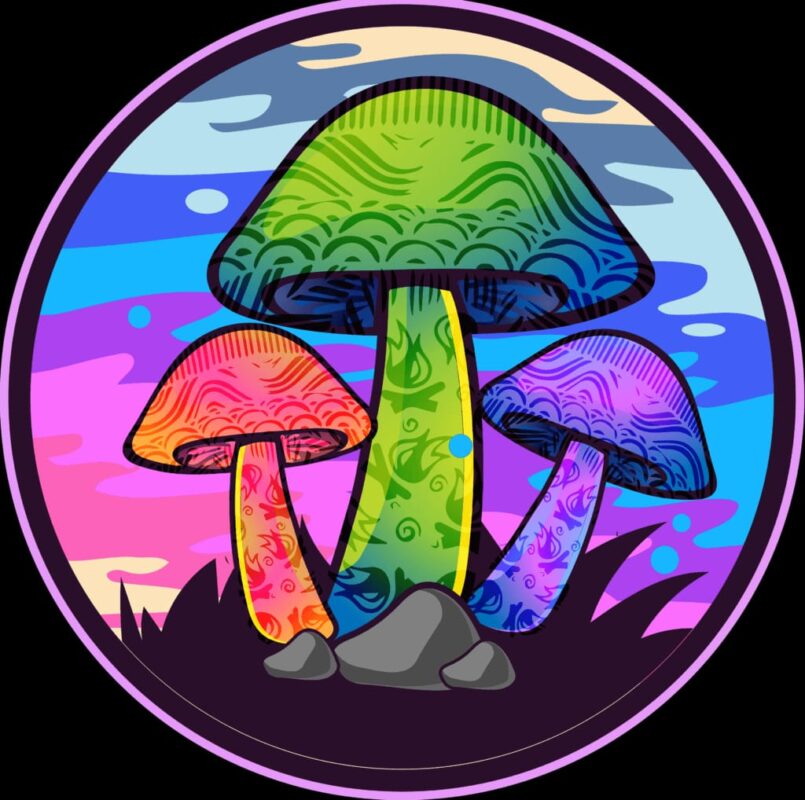

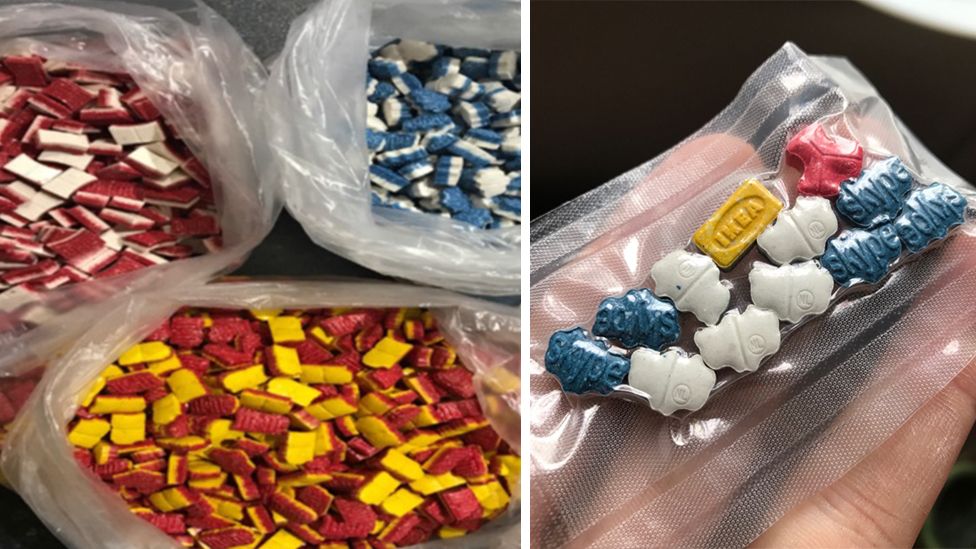
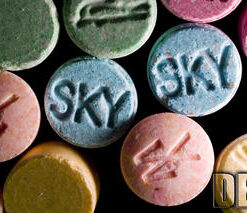
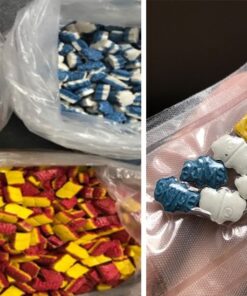
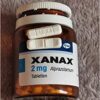

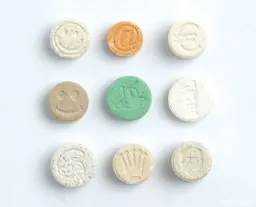
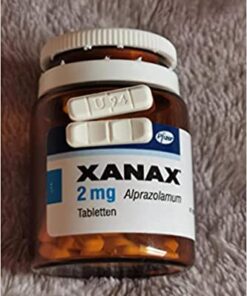
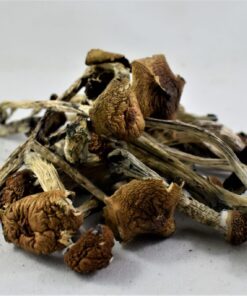
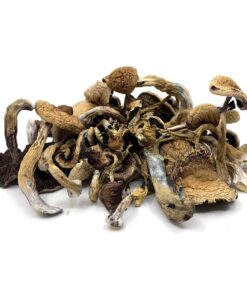
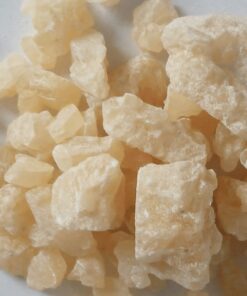
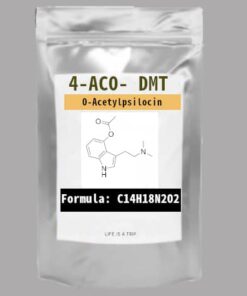
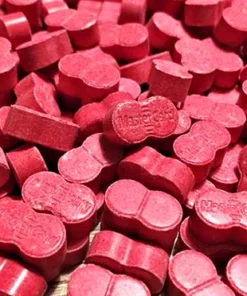
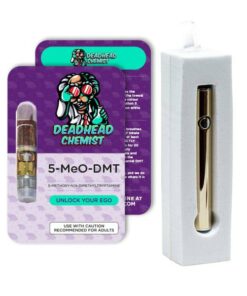

Reviews
There are no reviews yet.